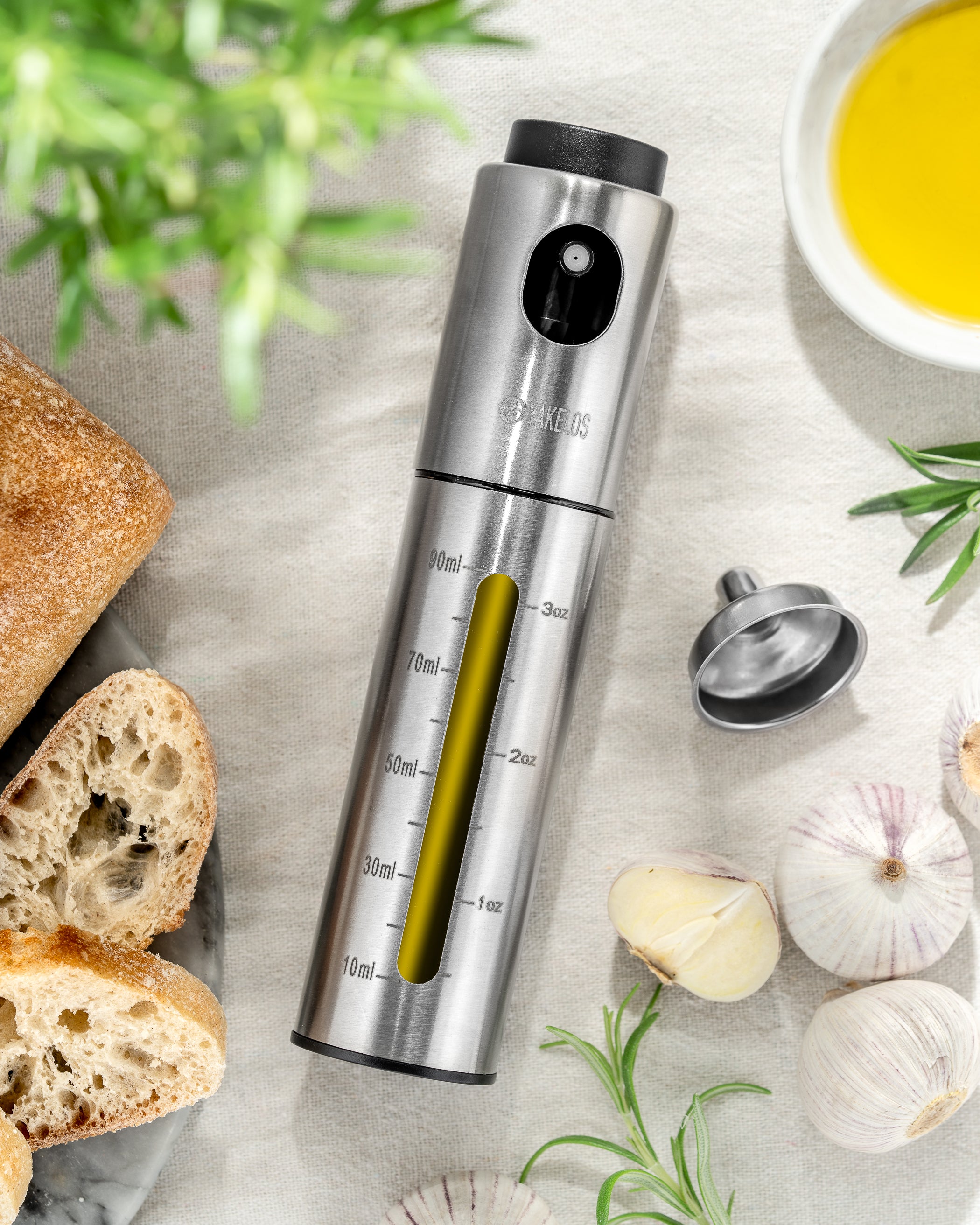It is now common knowledge that the so-called Mediterranean diet is healthy. But, scientists have been wondering for a long time, what exactly are the components that ensure this healthy effect? Could it be the essential oils, such as carvacrol in thyme, in the herbs that have an anti-inflammatory effect? Could less meat and more fish help to keep your body in top condition? Could it be the vasodilatory effects of the alcohol in the wine consumed with meals? Is it possibly the tranquility that comes from taking the time to enjoy a meal together? Or could it simply be a combination of all these elements together?
Lately, scientists have been focusing more and more on the substances, called polyphenols, that are hiding in olive oil. One important candidate is an antioxidant called oleocanthal. This substance appears to be responsible for the slightly burning, peppery sensation you feel in the back of your throat when you consume really good olive oil.
It turns out that oleocanthal is not only an antioxidant, but also has anti-inflammatory properties. Its effect reminds scientists of that of ibuprofen. The effect of ibuprofen is based on the inhibition of the so-called cyclo-oxygenase enzymes (COX). These enzymes are important for the production of the substance prostaglandin. Prostaglandin is a substance that is produced by the immune system in places where the body has been injured or where there is inflammation. Oleocanthal also appears to have an inhibitory effect on these cyclo-oxygenase enzymes.
Olive oil contains so much oleocanthal that consuming just 50 grams of good olive oil per day is equivalent to one-tenth of an adult ibuprofen tablet [1] . That amount is equal to about 3.5 tablespoons. And yes, ibuprofen activates the exact same receptor in the back of your throat that good extra virgin olive oil does, the hTRPA1 receptor [2] .
It is commonly thought that if you are consistently deficient in even a small amount of a particular vitamin, for example, it can lead to sub-clinical problems, resulting in symptoms that are too vague for a doctor to properly diagnose. Conversely, a sub-clinical dose of an anti-inflammatory like oleocanthal can also make your body better able to fight off infection. It is no wonder then that it is now thought that consuming small amounts of good extra virgin olive oil over a long period of time may be responsible for the low rates of heart disease and Alzheimer's in the Mediterranean region [3] .
Even your liver can appreciate the positive effects of oleocanthal. When the liver is repeatedly (or continuously) injured, the liver cells try to repair the damage, but these repair attempts eventually lead to scar tissue, which is called liver fibrosis. Recent research shows that oleocanthal can prevent this fibrosis and allow the liver to heal naturally [4] .
New research has even shown that oleocanthal is able to kill cancer cells within half an hour, while leaving healthy cells alone. The researchers even called the results amazing (Amazingly, oleocanthal induced cell death in all cancer cells examined) and they don't say that very often [5] . Well, this positive effect has only been proven in so-called cell lines in a laboratory for now, but it's a start.
A tip: to check whether your extra virgin olive oil is of excellent quality, you can swallow a teaspoon of olive oil. The degree of 'spiciness' at the back of your throat is a measure of the quality of that olive oil.
[1] Beauchamp et al: Phytochemistry: ibuprofen-like activity in extra-virgin olive oil in Nature – 2005
[2] Peyrot des Gachons et al: Unusual pungency from extra-virgin olive oil is due to restricted spatial expression of oleocanthal's receptor in Journal of Neuroscience - 2011
[3] Abuznait et al: Olive-oil-derived oleocanthal enhances β-amyloid clearance as a potential neuroprotective mechanism against Alzheimer's disease: in vitro and in vivo studies in ACS Chemical Neuroscience – 2013
[4] Gabbia et al: The Extra Virgin Olive Oil Polyphenol Oleocanthal Exerts Antifibrotic Effects in the Liver in Frontiers of Nutrition - 2021
[5] LeGendre et al: Oleocanthal rapidly and selectively induces cancer cell death via lysosomal membrane permeabilization (LMP) in Molecular & Cellular Oncology – 2015





